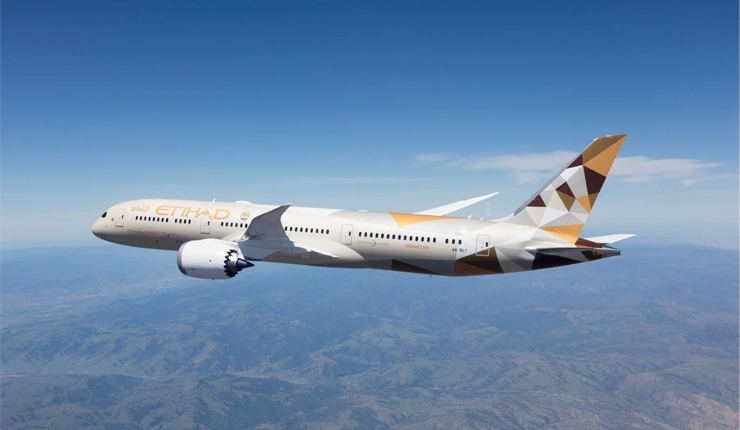UAE’s Etihad Airways has reduced its carbon emissions per Revenue Tonne Kilometer (RTK) in 2022 by 26 percent, to 482 grams, the airline said in its annual sustainability report published on Thursday.
The reduction comes in line with Etihad’s sustainability strategy, which is based on principles of achieving emissions reductions through in-sector measures.
The principles also included aligning with industry voluntary roadmaps and frameworks, collaborating with UAE industrial ecosystems, and remaining transparent about sustainability issues.
“Our sustainability strategy is built on a foundation of collaboration, transparency, and innovation, and we will continue to work with our partners, industry peers, and government agencies to drive positive change and lead the way towards a greener future for aviation,” said Antonoaldo Neves, Etihad Aviation Group CEO.
Together with ITOCHU Corporation and Neste MY Sustainable Fuel, Etihad was the first international airline to get SAF in Japan, the flight was the first delivery of c.50,000USG of Neste produced fuel, reducing approximately 75 tCO2.
Etihad, in partnership with World Energy, operated the first net-zero flight powered entirely by SAF Book & Claim offsetting CO2 emissions of 216 metric tons through sustainable aviation fuel credits.


